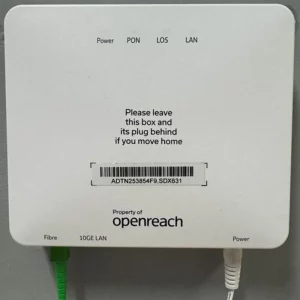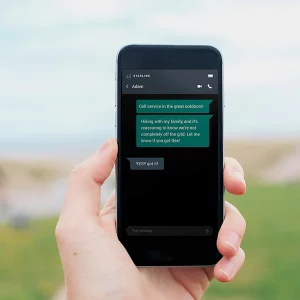Sponsored Links
Ofcom UK Study Finds 80 Percent Satisfaction with Superfast Broadband Services
Posted: 04th Aug, 2011 By: MarkJ
 Ofcom has today released its latest annual 2011 Communications Market Report (CMR), which covers almost every conceivable variable of the United Kingdom's TV, Radio and Telecoms (Phone, Broadband ISP etc.) market. The study found that 76% of UK homes are now connected to the internet (up from 25% in 2000) and 74% have broadband.
Ofcom has today released its latest annual 2011 Communications Market Report (CMR), which covers almost every conceivable variable of the United Kingdom's TV, Radio and Telecoms (Phone, Broadband ISP etc.) market. The study found that 76% of UK homes are now connected to the internet (up from 25% in 2000) and 74% have broadband.Ofcom's Director of Research, James Thickett, said:
"Ofcom’s 2011 Communications Market Report shows the influence that communications technology now has on our daily lives, and on the way we behave and communicate with each other.
Our research into the use of smartphones, in particular, reveals how quickly people become reliant on new technology, to the point of feeling ‘addicted’."
"Ofcom’s 2011 Communications Market Report shows the influence that communications technology now has on our daily lives, and on the way we behave and communicate with each other.
Our research into the use of smartphones, in particular, reveals how quickly people become reliant on new technology, to the point of feeling ‘addicted’."
Broadband take-up varies between the states with just 61% of Scottish homes having access compared to 71% in Wales and 75% in Northern Ireland. The report also finds that 500,000 UK households have now adopted superfast broadband services (those that advertise top speeds of 30Mbps+), which is a fivefold increase from 2010.

The vast majority of superfast subscribers use Virgin Media ( Cable Modem ) or BT-Infinity ( FTTC ) packages, which when combined now cover 57% of UK households. Crucially the satisfaction with superfast services is extremely high at a whopping 80%, which is well above the 57% for traditional broadband.
More importantly 33% found that the download speeds for superfast services "exceeded their expectations" and 63% of related consumers claimed they are now more likely than ever before to download High Definition (HD) films and or TV programmes over the internet.
Meanwhile people spend an average of 28 minutes online per day, while mobile calls account for 13 mins and fixed line phone calls just 12 mins; TV and Radio still dominate with 242 and 173 minutes respectively.
Some 91% of UK people also own a mobile phone (up from 36% in 2000), one in seven households are now mobile-only and 28% of adults use their mobile phones for internet access. As a result the penetration of landlines has dropped from 93% in 2000 to 81% in 2011. The proportion of mobile-only households is also greater in Wales (19%) and Scotland (17%) than the UK as a whole (15%).

Total telecoms revenues fell by 2% in 2010, though Mobile revenues increased by 1%. However fixed voice and broadband revenues continued to decline by 3% and 6% respectively. Overall consumers now pay a total of £93.61 per month for their communication services (mobile, tv, phone, broadband and radio). That's down from £96.42 in 2009.
Ofcom's full report is huge and it would be almost impossible to summarise everything, thus we've chosen to focus on the headline aspects of internet and phone services. But you can still read the full report below, just make sure to set aside an entire week if you plan to read everything.
Ofcom's UK Communications Market Report 2011
http://www.ofcom.org.uk/cmr
Search ISP News
Search ISP Listings
Search ISP Reviews
Latest UK ISP News








Cheap BIG ISPs for 100Mbps+
150,000+ Customers | View More ISPs
Cheapest ISPs for 100Mbps+
Modest Availability | View More ISPs
Latest UK ISP News
Helpful ISP Guides and Tips
Sponsored Links
The Top 15 Category Tags
- FTTP (6843)
- BT (3900)
- Politics (3093)
- Business (2788)
- Openreach (2679)
- Building Digital UK (2522)
- Mobile Broadband (2495)
- FTTC (2147)
- Statistics (2143)
- 4G (2110)
- Virgin Media (2038)
- Ofcom Regulation (1788)
- 5G (1753)
- Fibre Optic (1609)
- Wireless Internet (1602)
Sponsored
Copyright © 1999 to Present - ISPreview.co.uk - All Rights Reserved - Terms , Privacy and Cookie Policy , Links , Website Rules































